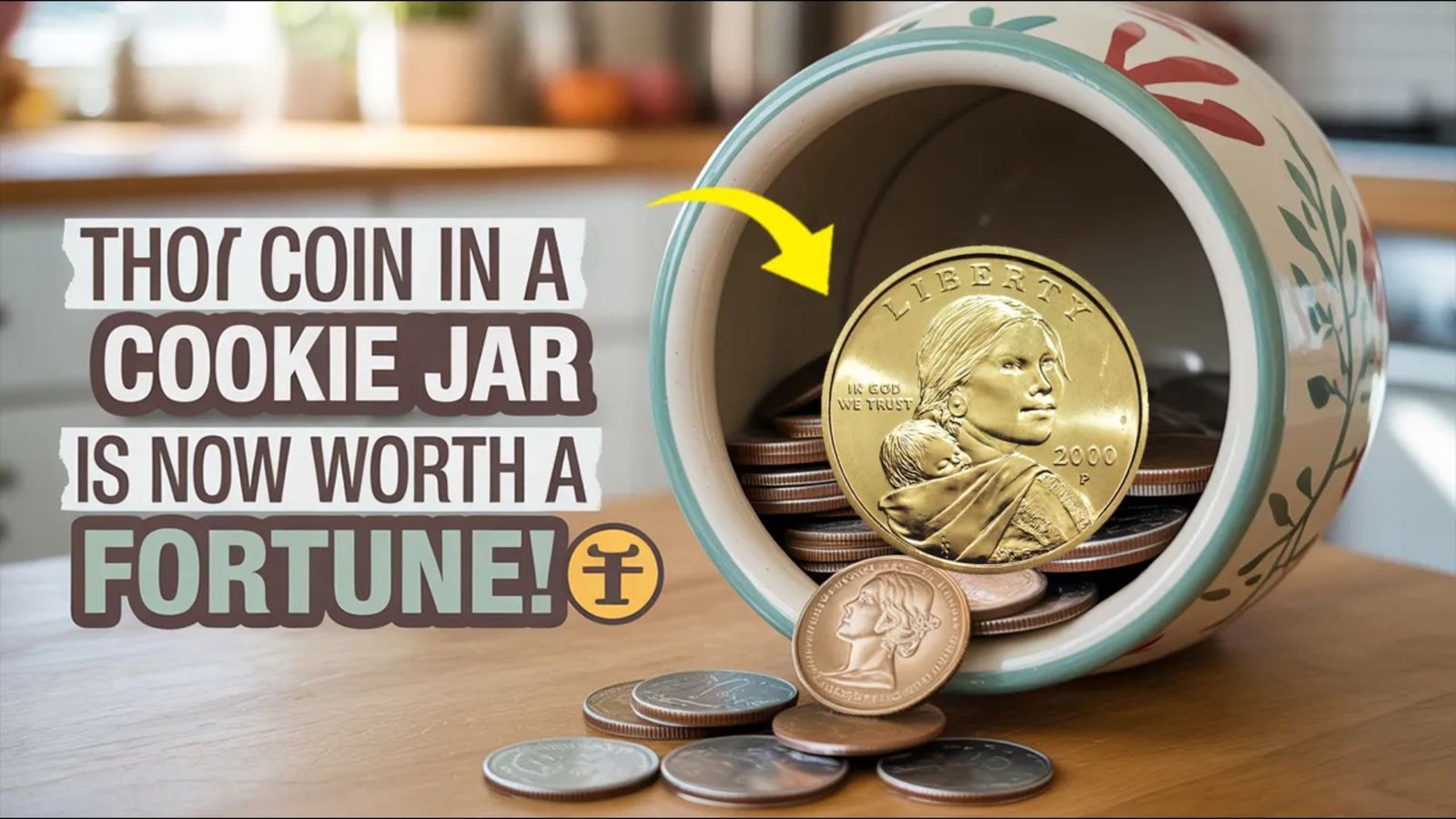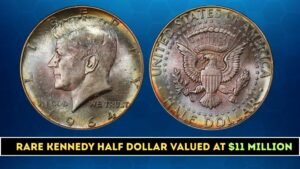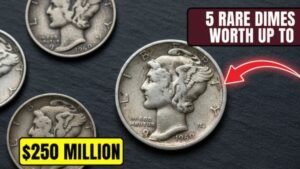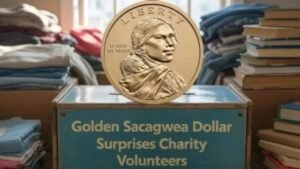Imagine reaching into your grandma’s dusty cookie jar for a snack and pulling out a shiny golden dollar coin. You toss it aside, thinking it’s just loose change. But what if that overlooked Sacagawea Dollar from 2000 is actually a rare gem worth over $50,000—enough to snag a sleek new SUV? Stories like this pop up in the world of rare coins, turning everyday folks into numismatic jackpot winners.
Stick around, and I’ll spill the beans on how this happened, why it matters, and how you might unearth your own treasure.
What Is the 2000 Sacagawea Dollar?
The Sacagawea Dollar hit U.S. pockets in 2000 as a fresh take on the dollar coin. It’s got that eye-catching golden hue and honors Sacagawea, the Shoshone guide from the Lewis and Clark expedition. On one side, she’s cradling her baby; flip it, and an eagle soars free. Most circulated quietly, but a special 2000-P version—the Cheerios Sacagawea Dollar—stole the spotlight for collectors.
The Surprising History of the Sacagawea Dollar
Back in the late ’90s, the Susan B. Anthony Dollar flopped hard. The U.S. Mint needed a winner, so they rolled out the Sacagawea Dollar in 2000. Over 800 million were minted that year. But here’s the twist: General Mills hid 5,500 special ones in Cheerios boxes as a promo. These had a unique reverse design with extra tail feathers on the eagle. Many got spent as regular bucks, slipping into cookie jars unnoticed.
Why This Rare Sacagawea Dollar Commands SUV-Level Value Today
In today’s numismatic market, rarity rules. That cookie jar find? Likely a Cheerios edition, fetching $5,000 to $10,000 or more in mint condition. Why? Only about 5,500 exist, and demand from rare coin enthusiasts skyrockets prices. With inflation and collector hype, it’s outpacing a base-model SUV’s sticker—think $40k+ easy.
| Feature | Regular 2000 Sacagawea Dollar | Cheerios 2000-P Sacagawea Dollar |
|---|---|---|
| Minted Quantity | 800+ million | ~5,500 |
| Reverse Design | Standard eagle | Eagle with 4 tail feathers |
| Average Value (Circulated) | $1 | $1,000+ |
| Top Auction Price | $50 | $25,000+ |
How to Hunt for Rare Coins in Your Own Home
Got a jar of mixed change? You’re sitting on potential gold. Start by sorting Sacagawea Dollars—check dates and designs under good light. Snap pics and hit up apps like CoinSnap for quick IDs. For real wins, visit a local coin shop. Engaging with numismatics isn’t just about cash; it’s a fun hobby that connects you to history.
Notable Facts and Auction Records
Did you know the Sacagawea Dollar was the first U.S. coin to feature a real person (not idealized)? Or that error versions, like the “Wounded Eagle,” have sold for $7,000. Here’s a quick look at big sales:
| Year Sold | Coin Variety | Auction Price |
|---|---|---|
| 2023 | Cheerios Sacagawea | $10,925 |
| 2024 | Wounded Eagle Error | $6,900 |
| 2025 | MS-68 Cheerios | $25,300 |
Expert Tips for Aspiring Numismatists
Keep it simple: Store coins in albums, away from moisture. Join forums like CoinTalk for advice. And always grade with PCGS or NGC pros—condition can double your haul. Start small; a $20 rare coin beats chasing unicorns.
Frequently Asked Questions (FAQs)
How do I know if my Sacagawea Dollar is rare?
Look for the 2000-P with feather details or errors. Weigh it—Cheerios versions are slightly heavier.
What’s the most valuable Sacagawea Dollar ever sold?
A pristine Cheerios hit $103,000 in 2021.
Can I sell my rare coin online?
Yes, via eBay or Heritage Auctions, but get it authenticated first.
Conclusion
From cookie jars to collector’s vaults, this 2000 Sacagawea Dollar tale reminds us: History hides in plain sight. Whether you’re a numismatic newbie or seasoned hunter, check your change—you could drive off in that SUV dream. Dive deeper into rare coins, share your finds below, or grab a magnifying glass today!




